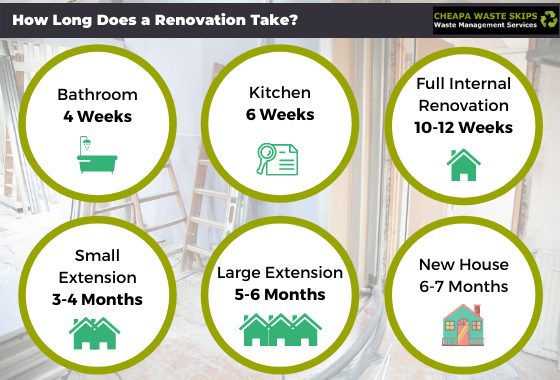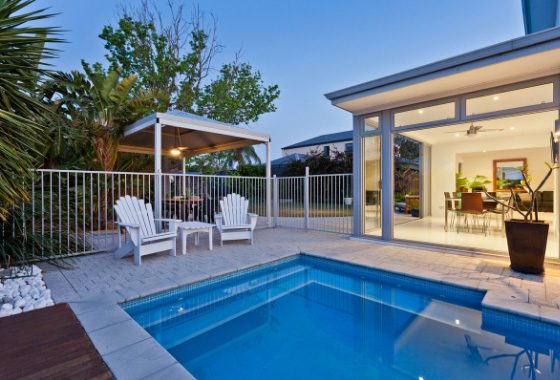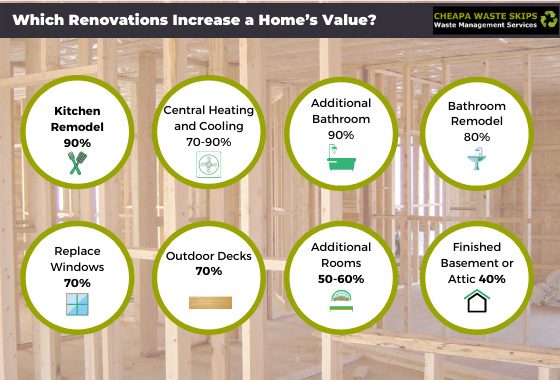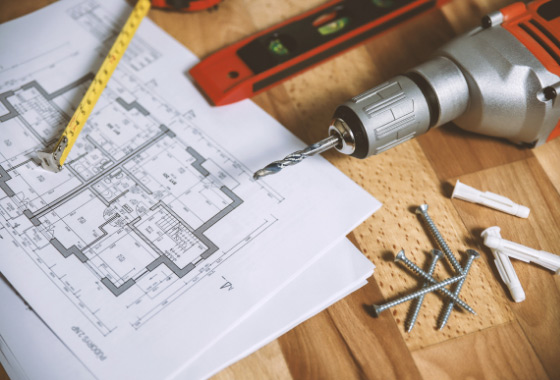There are many considerations when embarking on a home renovation, from demolition and waste removal, home design, interior design, considering which trades need to be involved, planning permission, the list goes on.
So where do we start? To help you get the ball rolling we’ve asked some building and home experts to share with us some great tips so you can avoid costly mistakes.
- How Can I Avoid Home Renovation Mistakes?
- How Can I Save Money on a Home Renovation Project?
- How Long Does a Home Renovation Take?
- Should I Project Manage My Own Home Renovation?
- Should I Hire an Architect?
- What Are the Current Trends That Families Might Want to Know About?
- What Are the Hidden Costs You Might Not Have Thought Of?
- What Are the Things to Consider for a Knock Down and Rebuild?
- What Renovations Increase a Home’s Value the Most?
- What Renovations Don’t Increase a Home’s Value?
How Can I Avoid Home Renovation Mistakes?
There are various steps you can take to avoid home renovation mistakes, from proper planning and budgeting to getting the right skilled people involved, here are a few considerations with comments from our expert contributors.
1. Extra Costs and Realistic Timelines
According to Andrew Strachan, Director of Allura Homes [1] one of the biggest pitfalls for buyers is not understanding the extra costs and realistic timelines during the construction phase.
Andrew says that most buyers only think about, and budget for, the house they wish to build and forget to consider extra expenses for landscaping, retaining walls, pools, sheds, driveways and fencing.
He also advises to consider construction timelines as it often takes longer than the sales pitch, so it’s important to budget for rentals, temporary living and storage.
2. Map Out Your Renovation Project
Map out your entire project ahead of time! Says Lennia from Ultima Building Group [2].
Do your research and build a budget before you pick up any tools. Knowing the potential and restrictions of your renovation will help you avoid any unnecessary costs.
The key is being organised!
3. Outsource
Outsource the whole project or parts of the project where it makes sense in terms of efficiency and cost savings.
For example: when considering waste removal, it’s going to be more cost efficient to hire a skip bin company to remove the material for you rather than doing it yourself.
You need to consider transporting the material to the tip, which means you may need to hire a Ute or a truck, plus the time it takes you to do the round trip and pay the tip fee.
If you work with a builder they may already have a skip hire team they work with and this could be scoped into their project cost.
How Can I Save Money on a Home Renovation Project?
There are many ways to save money on a home renovation project, Ryan Goodwin Director of Mode Renovations [3] shares the following tips:

- Partnering with a great team of trades or a Professional Builder will assist with becoming educated quicker when making decisions that will affect the design and cost of the project.
- Become educated by researching, asking questions and allow experts on your team to best understand the outcome you need and allow them to point you in the right direction.
- Understanding there is always more than one way to do something in this industry means that you can often get different or the wrong advice, so take it all on board and use someone who has a track record of successful projects and someone you trust.
- Keep asking Builders until you are confident your Builder understands your entire ‘big picture’.
- Try to work with a Builder that does it all! Someone who can help you create the design scope, finalise material options with you and fully manage the outcome means they are most likely to deliver what you want on time and budget without any gaps in deliverables.
- Share your budget with the Builder/ Design and ask them to plan/ design to budget.
- In addition, Matt Scott, Owner of Termite Survey [4] gives a great tip on saving money on fittings and fixtures:
If let’s say, you’re renovating your kitchen, one way to save on money is by reusing the cabinetry. You can do some repainting if needed, but an old one should be as good as new if you fix it up right.
As for saving money on materials, you can buy some on salvage yards or buy/sell/trade websites. Some of them may not be brand new, but you’ll have a good enough deal if you pick one that’s used but not abused.
How Long Does a Home Renovation Take?
Timelines all depend on the size of a project, however we would normally offer the following advice as a guideline for project durations, says Ryan Goodwin [3]:
- Bathroom: Up to 4 weeks
- Kitchen: Approx. 6 weeks
- Full House Internal Reno: 10-12 weeks
- Small Extension: 3-4 months
- Large Extension: 5-6 months
- New House: 6-7 Months
By the time your project starts, your Builder should be able to clearly state the expected timeline for you.
It would be advisable to request a shared schedule of works, so you can also see how the project is tracking against the proposed dates and so that you are areas if things run behind at all.

A sizable company with a lot of resources should be able to manage a schedule well, however if you hire a one man band, then it is more likely things may run behind if other things in his/her life get in the way.
Andrew Stachan [1] says: many home buyers are enticed by move-in ready homes that claim to be completed within a matter of months. However the promises are rarely completely accurate and could create significant financial and logistical stress for buyers.
Construction time is also a critical but forgotten factor, Andrew goes on to say. For example, a CDC (comply and development certificate) can take up to four weeks, and the Development Application process can last up to five months.
This is on top of construction time and quality assurance, meaning that a move-in-ready home promised in 12 months will take much longer to complete.
Should I Project Manage My Own Home Renovation?
With Designers, suppliers, dozens of tradespeople, inspectors, Engineers, Consultants, Assessors, Surveyors, involved in each project the list goes on and on.
There are often well over 100 individuals that will be involved in building your new Custom Home or Renovation. From the early plan and design stage all the way through to the onsite management and trade execution, says Ryan Goodwin [3].
We would always recommend that you engage an experienced licensed builder to manage the process and outcomes.
You also want to tap into the years of experience and expert advice to ensure your home is the best it can be.

Some people think it may be cheaper managing the entire project yourself, however once you consider your own time, mistakes, delays, ordering, site management, negotiation, mis ordering, not receiving industry discounts, supplier management, dispute resolution, stress, sleepless nights and more, we don’t think it ends up cheaper at all.
Obviously the bigger the project value the greater the risk, so if it is not something you have done before successfully, then leave it to the experts!
The small premium you may ultimately pay should allow you to have a stress free experience and love the process of building your new home.
Should I Hire an Architect?
You can certainly hire an experienced architect to plan your renovation, however according to Ryan Goodwin [3] ‘hiring an Architect often can be costly and if considering them to oversee the project it can cost up to 10% of the Project value’.
So this is something that would need to be considered on an individual basis and may depend on the complexity of the project.
Ryan goes on to say: ‘If engaging a Draftsperson (Building Designer), then this will normally come at a much smaller cost and often is suitable for most house designs or residential projects. A local draftsperson is often more in tune to the local shire building authorities and potential restrictions to be considered.
For the best formula we recommend choosing a Building company that can also offer the design service as part of their package.
This will ensure that the most cost effective design is considered, your project budget is consistently reviewed along with formal Building estimates and alternative material options are considered presented where warranted to assist with managing expectations.
This expert team will also allow you to enjoy the process and should manage the process seamlessly on your behalf’.
What Are the Current Trends That Families Might Want to Know About?
Many of us are relying on our homes as multifunctional spaces now more than ever, says Lennia from Ultima Building Group [2]. My advice for families – invest in cultivating your outdoor space into a functional area for entertaining.

Much like our indoor spaces, our backyards can be used to elevate our time at home. Depending on the space available and your budget, swimming pools, dining alfresco and/or outdoor firepits are perfect additions to your space.
What Are the Hidden Costs You Might Not Have Thought Of?
‘Always check if there are any structural corrections that need to be made’, says Lennia [2], ‘and the standard of the plumbing and electrical work. While these aren’t the most exciting expenses, unexpected variations during renovations can have a costly impact on your plan for the fun stuff!’
Landscaping/ gardening costs including fencing and retaining walls are also elements you may need to factor in, as well as waste removal. If you have an old property you may need to seek a specialist to remove asbestos or other unwanted material from the site.
What Are the Things to Consider for a Knock Down and Rebuild?
There are many elements to a knockdown and rebuild project, here are some key considerations from Andrew Stachan [1]:
- Consider sun orientation
- Understand trees – what can you leave on the site and what needs to be professionally removed
- Understand where sewerage is located and if it needs to be redirected
- Consider street characteristics that might inform the way your home is built, like overhead or underground power lines
- Understand sloped sites – will you need extra steps, ground levelling or retaining walls?
Which Renovations Best Increase a Home’s Value?
The real estate market changes periodically, based on consumer search and the statistical preferences of potential home buyers each year. However, there are a few improvements that are timeless and will provide your property with all the things buyers look for, says Eva Bowker from Fantastic Handyman [5].
The goal is to distinguish the things people really need versus the things considered non-essential.
Here are the investments with the biggest return [5]:
- Kitchen remodel: around 90% return on investment, depending on the size and quality
- Install central air and heating systems: around 70-90% return on investment, depending on the type of system
- Additional bathrooms: 90% return on investment
- Bathroom remodel: 80% return on investment
- Replacing windows: 70% return on investment
- Outdoor decks: 70% return on investment
- Additional rooms: 50-60% return on investment
- Finished basement or attic: around 40% return on investment, depending on the size of the premises

What Renovations Don’t Increase a Home’s Value?
Eva goes on to tell us about the things that don’t really increase a home’s value:
Everything considered a luxury, like custom fireplaces, playrooms, home cinemas, etc. These things are lovely and many people dream of having them.
However, there’s no point in making these additions if you’re about to sell the property because this can easily make your property too expensive for the given neighbourhood, which would make it unsellable to the target market in the area.
Additional Information
If you need more information on your next home renovation, you may want to take a look at the
Your Home website, which covers everything from choosing a site to build on, to ventilation and insulation considerations.
Thanks to all our expert contributors for their advice and knowledge on home renovations, you can learn more about them below.
Contributors
Our expert contributors are:
- Andrew Strachan, Director Allura Homes
- Lennia Pedroso, Ultima Building Group
- Ryan Goodwin, Director Mode Renovations
- Matt Scott, Owner Termite Survey
- Eva Bowker, Fantastic Handyman
Do you have any other tips for home owners looking to embark on a home renovation? If so send us your tips
here.

